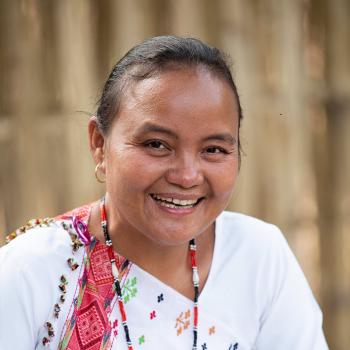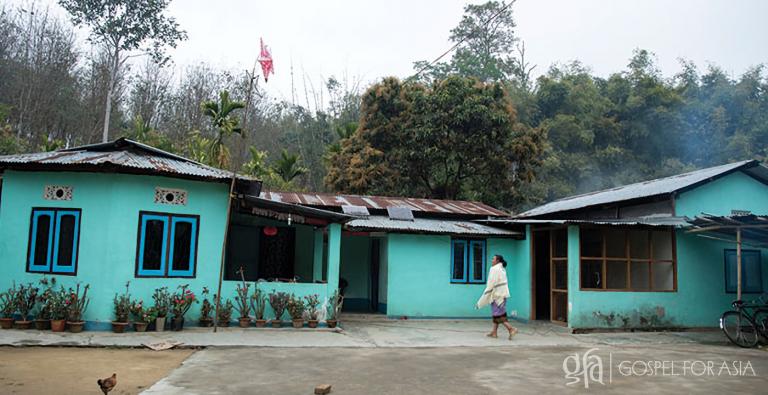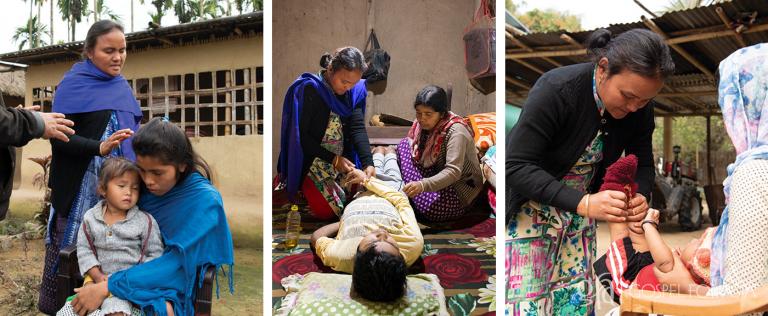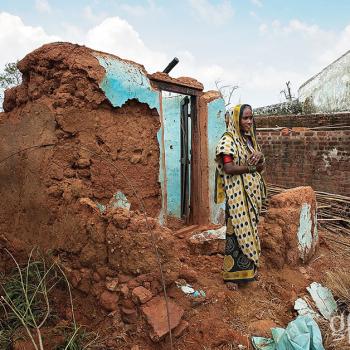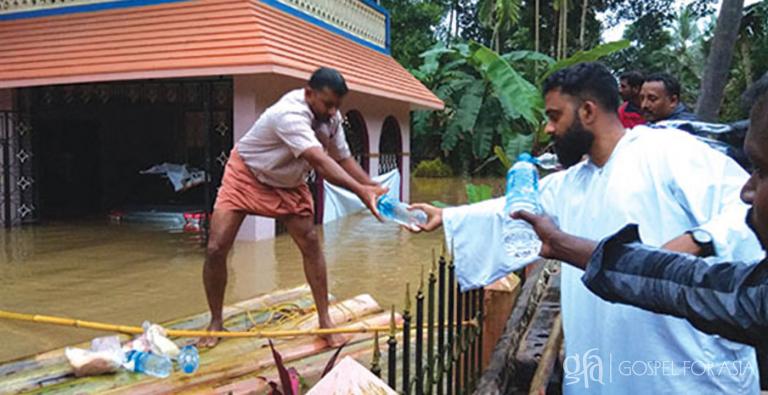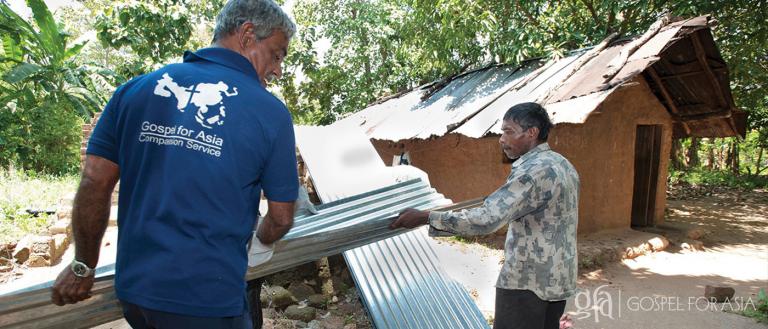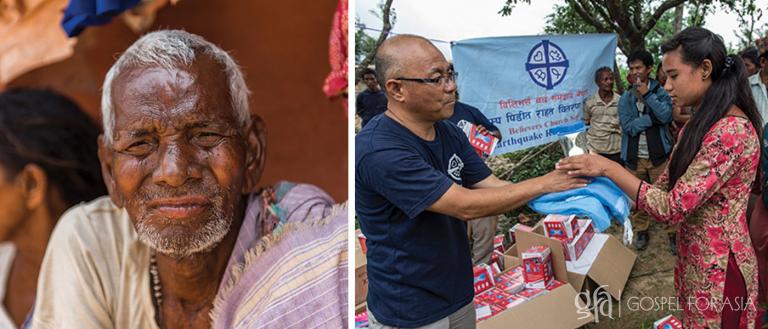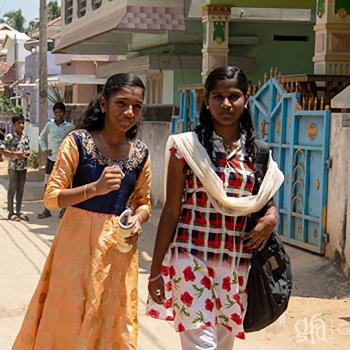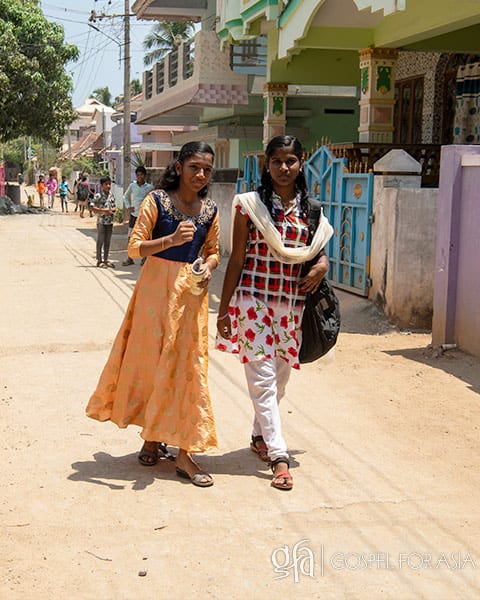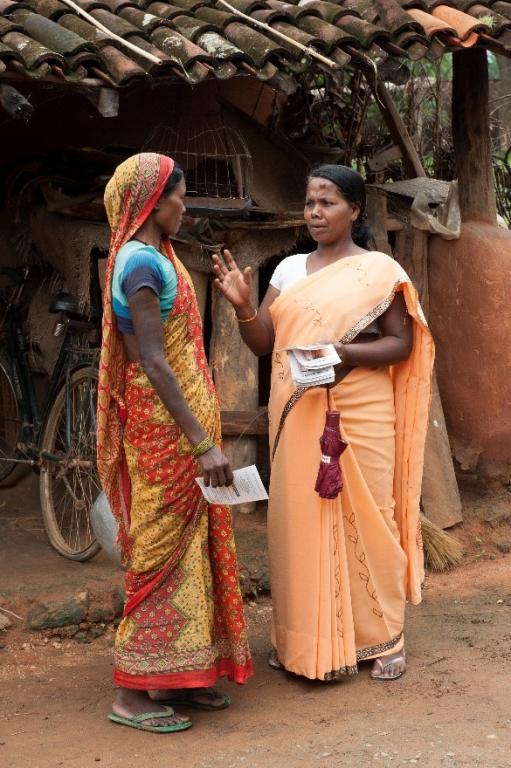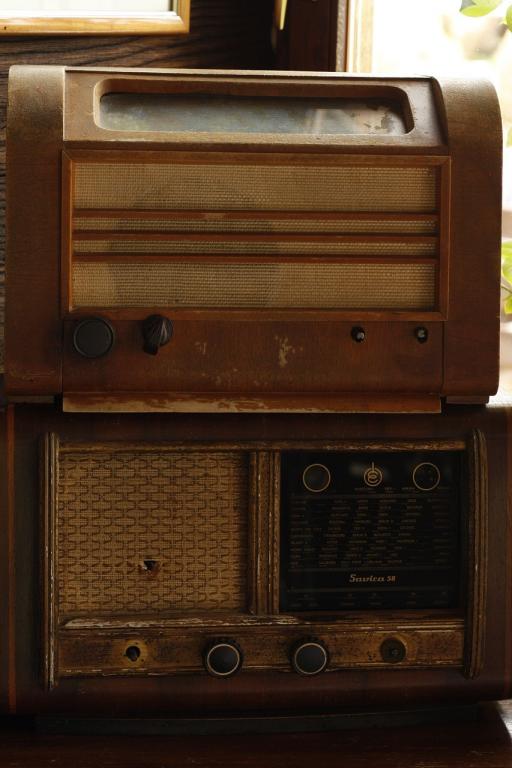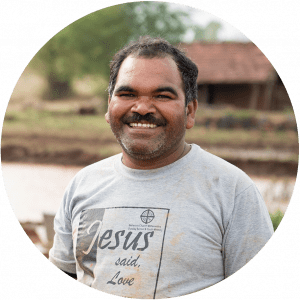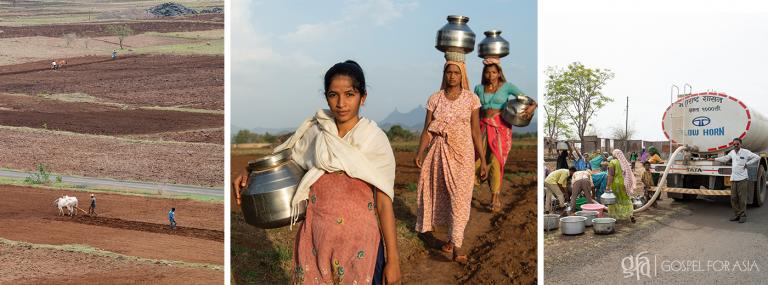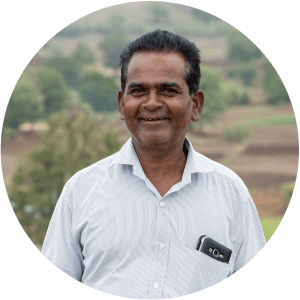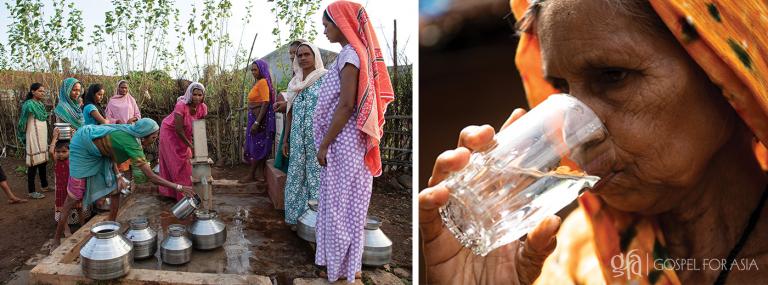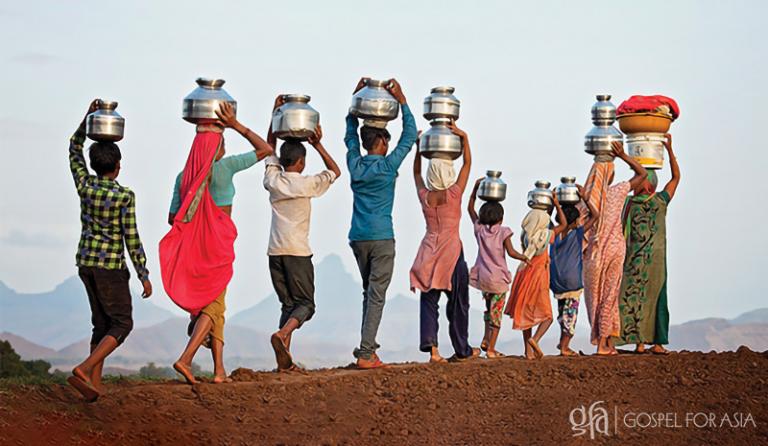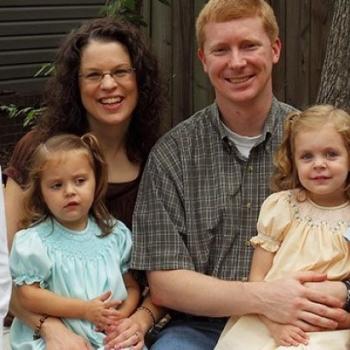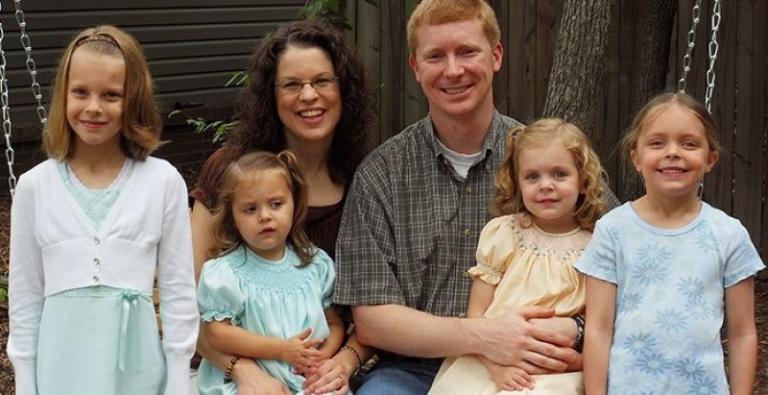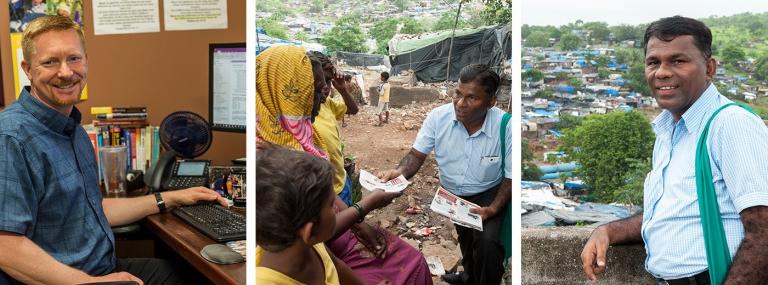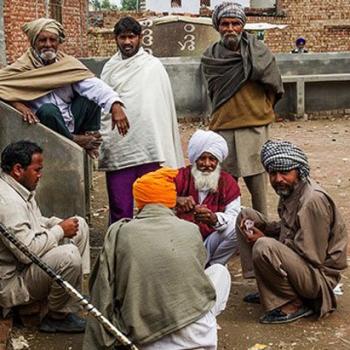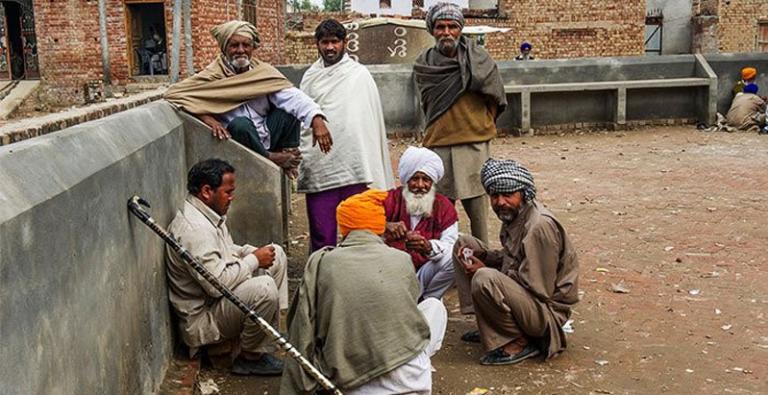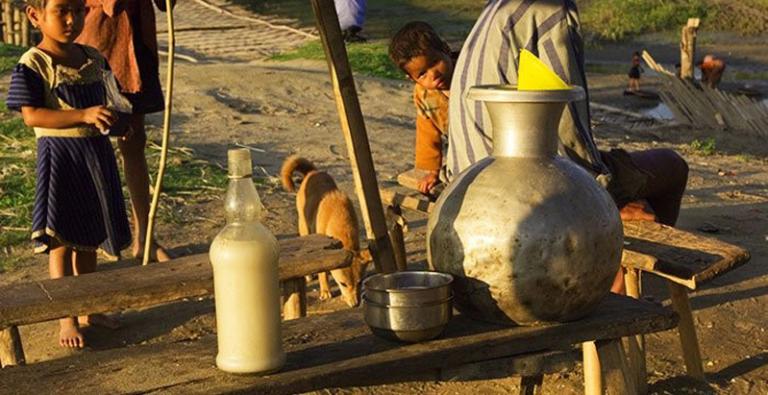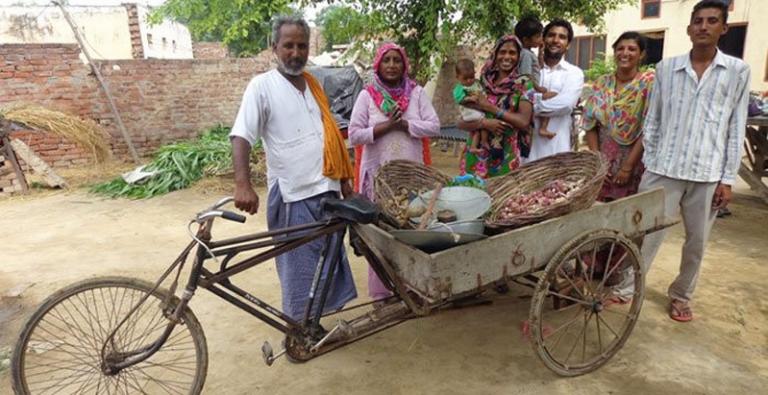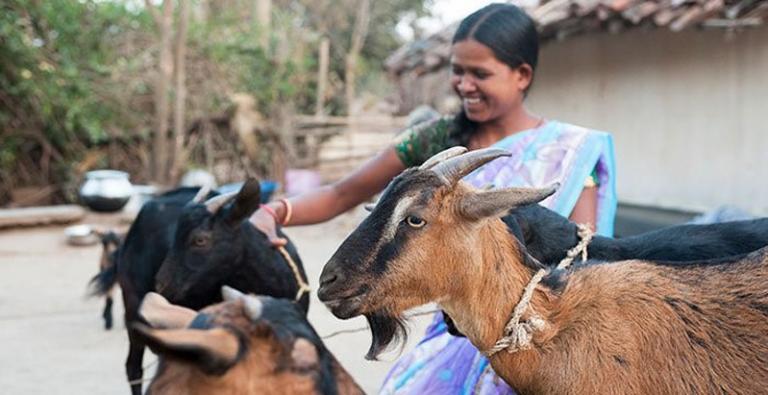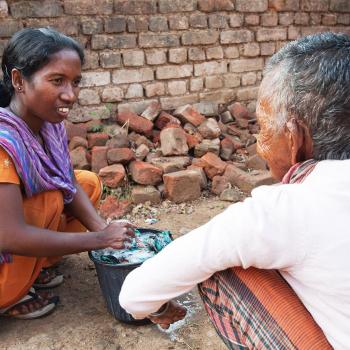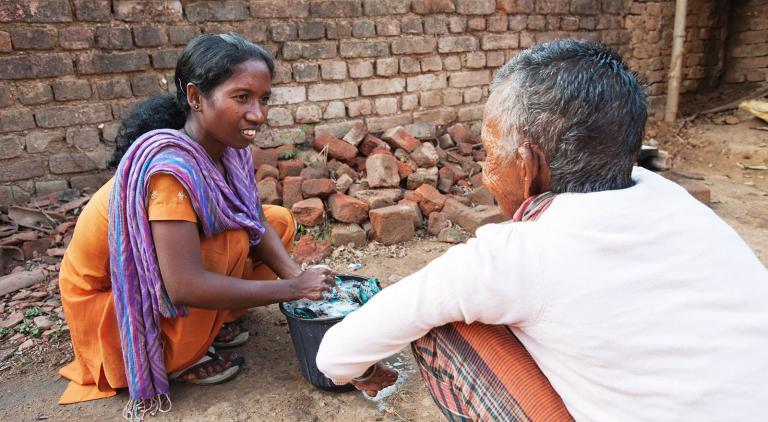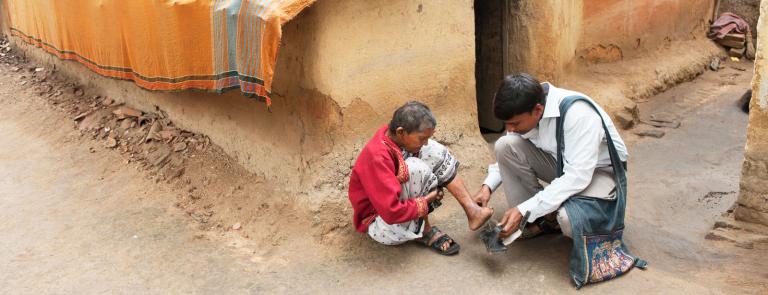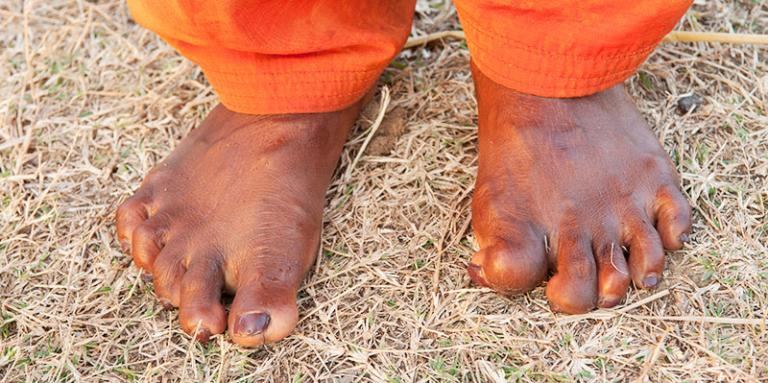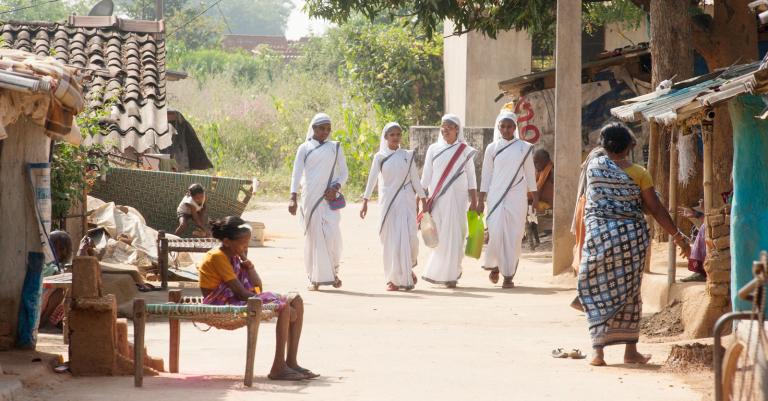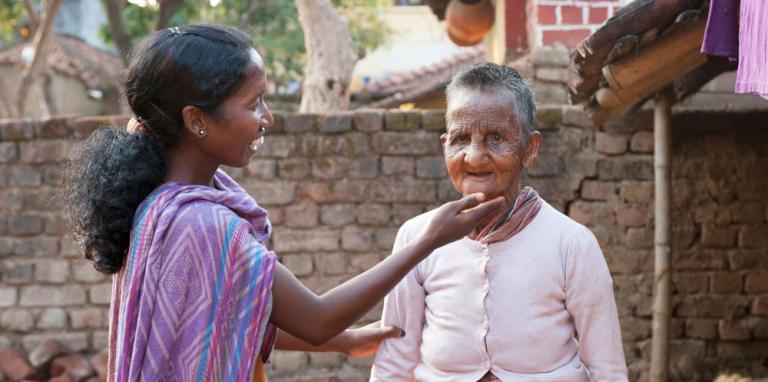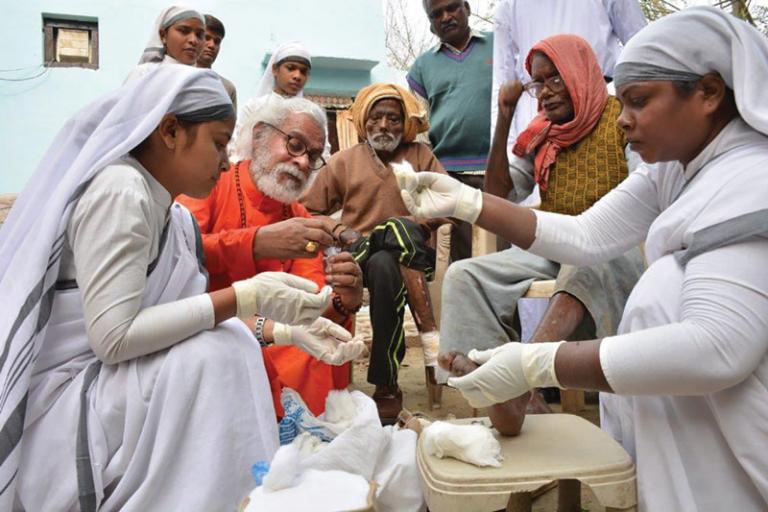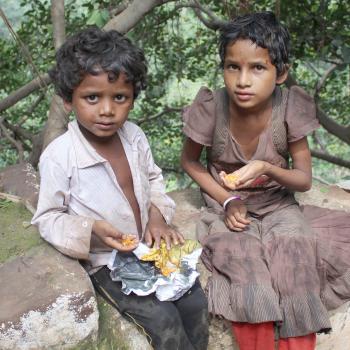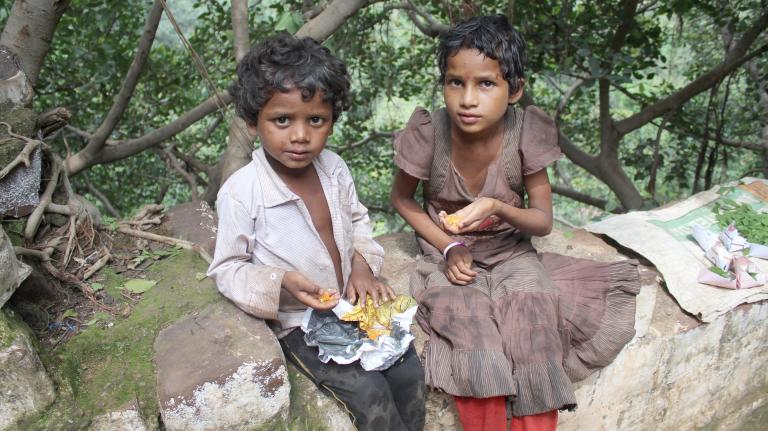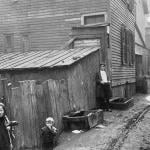WILLS POINT, TX – Gospel for Asia (GFA) – Discussing Sister Mary, one of a special number of women missionaries who open their hearts and homes for the sick and destitute, introducing them to the God who hears and answers prayers.
Sister Mary grew up in a small, remote village in Asia. She never went to school and has remained illiterate for 42 years. Despite her limitations, Sister Mary has seen God do impossible things. This is her story.
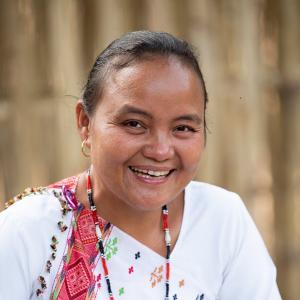 In the year 2007, Sister Mary traveled with her husband, a Gospel for Asia (GFA)-supported pastor, and other national workers to meet many suffering people in need. One woman was pregnant and sick. She was close to delivering her baby, and both were in danger.
In the year 2007, Sister Mary traveled with her husband, a Gospel for Asia (GFA)-supported pastor, and other national workers to meet many suffering people in need. One woman was pregnant and sick. She was close to delivering her baby, and both were in danger.
Seeing the power of God displayed through prayers, Sister Mary decided prayer would be the bedrock of her ministry.
Faithful Prayers: The Fount from Which Healing Flows
Back in her own village, Sister Mary did not want to stop praying for people, and with it, the privilege of seeing God move in their lives. So, she started a prayer group. They gathered weekly to pray for the sick and needy. News of their group spread, and many people made their way to it to receive hope and healing through the prayers of Sister Mary and her companions.
“There were many people from far villages who were affected by fatal sicknesses like cancer,” Sister Mary recalls.
“Many came for prayer, and many got healed … There were some who were blind, some were paralyzed, and the Lord healed them. … We read the Bible to them and prayed for them, and the Lord healed them.”
For many, it was the first time they realized there was a God who cares for them personally and answers prayer.
Those who sought Sister Mary’s prayer group were not the only ones ministered to. Sister Mary noticed a change in her as well. Love for the sick and destitute grew in her heart. She wanted to be with them and serve them. She wanted to share with them the God of power and love.
Eventually, so many people came to the prayer group that they met in Sister Mary’s house that she knew they needed a separate facility. Often, people would drop off their family member or friend to be cared for until healed. Some stayed weeks or months. Sister Mary did what she always does—she prayed.
“Those who came for prayer needed rooms,” she says. “We lacked sufficient facilities. … I started to pray and fast for 20 days, and the Lord answered my prayers.”
The new building was christened “Bethsaida Prayer Center,” inspired by Jesus’ healing of a man who had been sick for 28 years by the pool of Bethsaida. Bethsaida Prayer Center would eventually grow to see 3,000 to 4,000 people pass through each year.
Trusting God in Life and Death
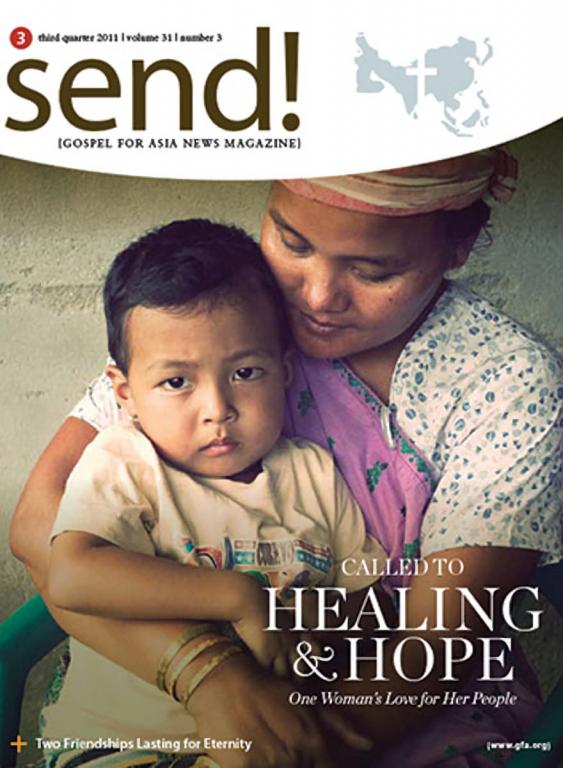 Sister Mary stood in awe as God healed thousands of people in the Bethsaida Prayer Center through her simple prayers and those of her team. But not everyone rejoiced at the reports of miraculous healings.
Sister Mary stood in awe as God healed thousands of people in the Bethsaida Prayer Center through her simple prayers and those of her team. But not everyone rejoiced at the reports of miraculous healings.
One day, a man suffering from throat cancer, Kalpa, came to the prayer center. After a month, the Lord healed Kalpa. He and his whole family embraced the God of healing who came through for them in their moment of need. When the family returned to their village, news of their newfound belief stirred up trouble. When another family from the village wanted to join Kalpa in worshiping Jesus, the other villagers became enraged with Sister Mary and the prayer center staff.
“I told the villagers that the Lord did the healing [of Kalpa], and I told the family that the Lord loves them and offers eternal life,” Sister Mary shares.
“Hearing that made the village head furious, and he took a machete and tried to hack me. But the Lord protected my life miraculously. … I did not even realize [the machete] had touched my neck.”
A few months later, the very man who viciously attacked Sister Mary came to her for prayer when he was suffering from cancer. In His mercy, the Lord healed the man, which opened his heart to believe in the Lord Jesus.
Another time, Sister Mary was injected with a lethal poison by a violent man who opposed her ministry.
“I survived because my God is a living God, and He rescued me,” Sister Mary says.
“Yes, there are threats to my life in ministry, but I believe that God is always with me and protects my life … That incident did not douse my passion and desire to serve the Lord, rather it deepened my commitment to serve the Lord all the more.”
A Life Devoted to God
Prayer is the fuel for Sister Mary’s faith in the Lord. Her time with Him energizes her life, bringing the power to love and serving everyone she interacts with. Her trust in the Lord is the natural fruit of seeing Him perform so many miracles and answer so many prayers.
“I am so happy and glad that the Lord not only hears our prayers, but He also answers,” she says. “I know that the Lord is able to do what man is not able to do. … I always want to be surrounded by His presence.”
God, in His mercy, has seen fit to use the weak, despised and rejected—women like Sister Mary—to proclaim His glory around the world. Many women all throughout Asia serve as instruments of the Living God to bring the hope of Jesus into broken and suffering lives. Women have a unique opportunity to enter the secluded and often vulnerable lives of other women. The ministry and prayers of these mighty women are flooding communities in Asia with hope and joy in the name of Jesus.
Learn more about the Sisters of Compassion, Gospel for Asia’s specialized women missionaries, who have hearts that ache for hurting women and those deemed as poor and needy.
*Names of people and places may have been changed for privacy and security reasons. Images are Gospel for Asia stock photos used for representation purposes and are not the actual person/location, unless otherwise noted.
Source: Gospel for Asia Reports, ‘The Lord is with Me When I Pray’
Click here, to read more blogs on Patheos from Gospel for Asia.
Learn more about Gospel for Asia: Facebook | YouTube | Instagram | LinkedIn | SourceWatch | Integrity | Lawsuit Update | 5 Distinctives | 6 Remarkable Facts | 10 Milestones | Media Room | Missing Women | Endorsements | 40th Anniversary | Lawsuit Response |


